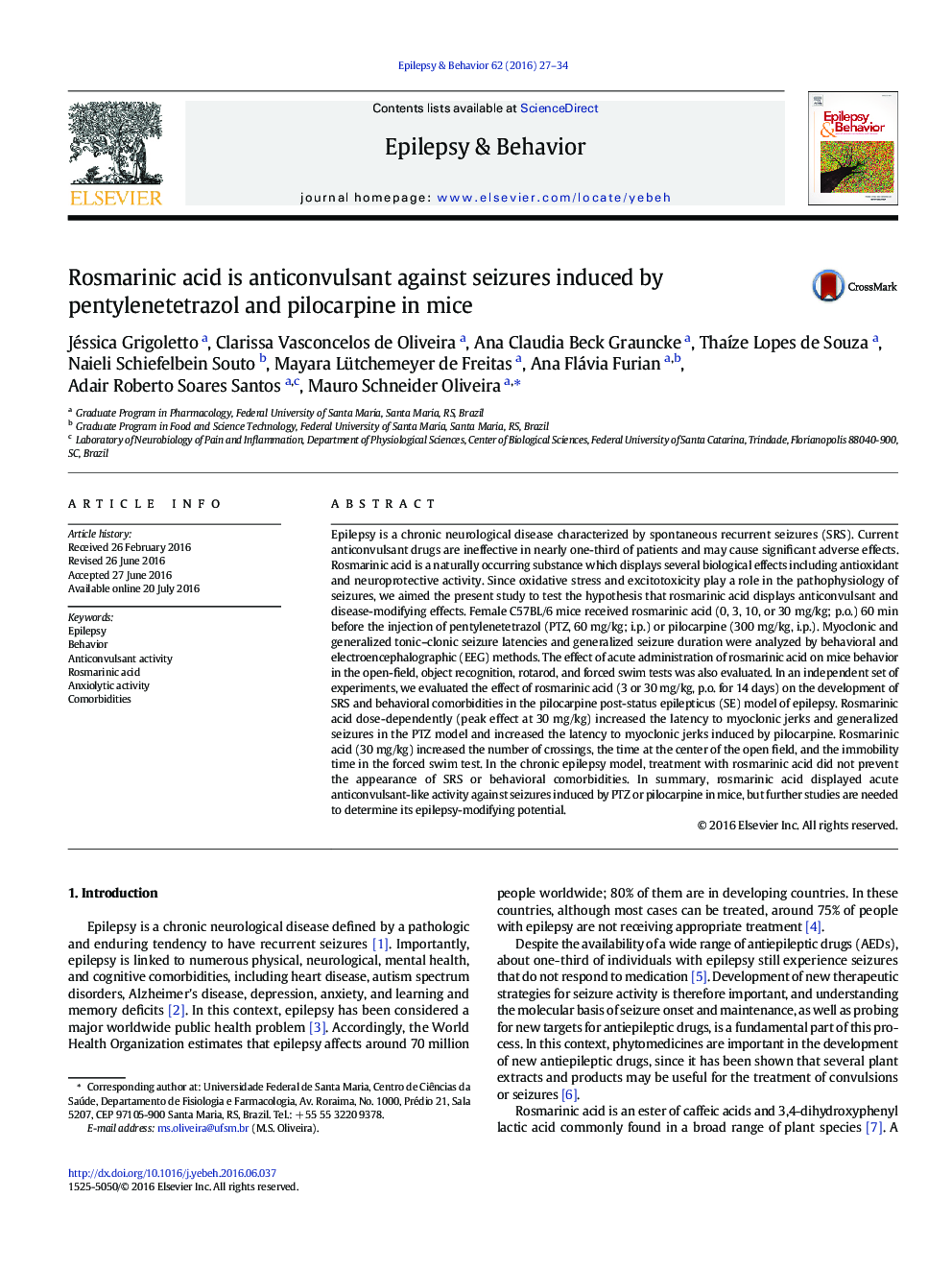| کد مقاله | کد نشریه | سال انتشار | مقاله انگلیسی | نسخه تمام متن |
|---|---|---|---|---|
| 6009742 | 1579829 | 2016 | 8 صفحه PDF | دانلود رایگان |
- Rosmarinic acid delays the onset of PTZ-induced myoclonic and tonic-clonic seizures.
- Rosmarinic acid increases the latency to pilocarpine-induced tonic-clonic seizures.
- Rosmarinic acid does not modify the consequences of pilocarpine-induced SE.
Epilepsy is a chronic neurological disease characterized by spontaneous recurrent seizures (SRS). Current anticonvulsant drugs are ineffective in nearly one-third of patients and may cause significant adverse effects. Rosmarinic acid is a naturally occurring substance which displays several biological effects including antioxidant and neuroprotective activity. Since oxidative stress and excitotoxicity play a role in the pathophysiology of seizures, we aimed the present study to test the hypothesis that rosmarinic acid displays anticonvulsant and disease-modifying effects. Female C57BL/6 mice received rosmarinic acid (0, 3, 10, or 30Â mg/kg; p.o.) 60Â min before the injection of pentylenetetrazol (PTZ, 60Â mg/kg; i.p.) or pilocarpine (300Â mg/kg, i.p.). Myoclonic and generalized tonic-clonic seizure latencies and generalized seizure duration were analyzed by behavioral and electroencephalographic (EEG) methods. The effect of acute administration of rosmarinic acid on mice behavior in the open-field, object recognition, rotarod, and forced swim tests was also evaluated. In an independent set of experiments, we evaluated the effect of rosmarinic acid (3 or 30Â mg/kg, p.o. for 14Â days) on the development of SRS and behavioral comorbidities in the pilocarpine post-status epilepticus (SE) model of epilepsy. Rosmarinic acid dose-dependently (peak effect at 30Â mg/kg) increased the latency to myoclonic jerks and generalized seizures in the PTZ model and increased the latency to myoclonic jerks induced by pilocarpine. Rosmarinic acid (30Â mg/kg) increased the number of crossings, the time at the center of the open field, and the immobility time in the forced swim test. In the chronic epilepsy model, treatment with rosmarinic acid did not prevent the appearance of SRS or behavioral comorbidities. In summary, rosmarinic acid displayed acute anticonvulsant-like activity against seizures induced by PTZ or pilocarpine in mice, but further studies are needed to determine its epilepsy-modifying potential.
61
Journal: Epilepsy & Behavior - Volume 62, September 2016, Pages 27-34
